Ingredient Control & Customization
- ✓Choose fresh, organic options
- ✓Avoid additives & preservatives
- ✓Tailor flavors & textures
As you embark on the journey of feeding your baby, did you know that making your own baby food can be both rewarding and nutritious? Let's explore the many benefits of this practice together!
Making your own baby food offers fresh ingredients, cost savings, and a chance to introduce diverse flavors. Below you'll find a concise comparison of key benefits and considerations. For more insights, you can also explore whether to choose homemade or store-bought baby food.
As a parent, you want the very best for your little one, and that often means considering the quality of the food they eat. Homemade baby food can be a wonderful choice for those who are looking to provide nutritious and safe meals tailored specifically to their baby's needs. But why exactly should you consider making your own baby food over opting for store-bought options? Let’s dive into this delicious topic!
When it comes to feeding our babies, we all want to make informed choices, and homemade baby food can offer distinct advantages. One of the primary reasons to go homemade is the control you gain over ingredients. By preparing food at home, you choose fresh, organic options and avoid unnecessary additives or preservatives.
Additionally, homemade baby food allows you to discover your baby’s palate early on! Each meal can be an adventure, introducing new flavors at your own pace. I remember introducing my daughter to sweet potato puree; her delighted expression was priceless!
Creating balanced meals from homemade baby food not only supports our babies' growth but also sets the stage for healthy eating habits. Balanced meals for babies are essential as they provide the variety of nutrients they need during their crucial developmental stages. Learn more about nutrient-rich baby foods to ensure your little one gets the best start. Think of proteins, healthy fats, and carbohydrates as the trifecta of nourishment!
By focusing on balanced meals, you're not just filling their tummies; you're laying the foundation for a lifetime of healthy eating patterns. Isn’t that a beautiful thought? Let's move forward and ensure that the food we create is as safe as it is nutritious!
As parents, we naturally worry about the safety of the food our babies consume. That’s why it’s crucial to adhere to some key guidelines when preparing homemade baby food. Safety is non-negotiable, and I’m here to walk you through it!
Before we get cooking, let’s talk about some essential safety tips that will help you create delicious and safe meals for your baby. Start by washing your hands and surfaces thoroughly! Here are some more pointers to keep in mind:
Following these steps can make a big difference in ensuring that the meals you prepare are both nourishing and safe. Remember, peace of mind is just as important as the nutrition!
Understanding the broader safety guidelines for baby food is essential. As your baby grows, their digestive system still needs to adapt to new foods. Here are some key guidelines to consider:
By adhering to these guidelines, you can feel confident in the food you prepare for your little one. Safety first, then deliciousness!
As we venture into the exciting world of flavors, we must also be mindful of allergies. Some foods can trigger allergic reactions, and it’s essential to approach new foods with caution. Start by introducing common allergens like eggs or peanuts in small amounts, and observe your baby's reactions carefully.
With these strategies in place, you can safely navigate the world of baby food. The journey is not just about nutrition; it’s about creating delightful memories along the way!
A1: Homemade baby food offers control over ingredients, allowing you to choose fresh, organic options and avoid additives. It also allows for customized flavors and textures, can be more cost-effective, and fosters a positive relationship with food.
A2: To ensure balanced meals, include a variety of proteins (e.g., pureed lentils, chickpeas), healthy fats (e.g., avocado, olive oil), and carbohydrates (e.g., whole grains like oats). Variety in fruits and vegetables also ensures a wide range of nutrients.
A3: Essential safety tips include thoroughly washing hands and surfaces, using fresh ingredients, proper storage to prevent spoilage, and using separate utensils for raw and cooked foods to avoid cross-contamination. Always cook food thoroughly.
A4: Introduce new foods one at a time, waiting a few days between each new introduction to monitor for any allergic reactions. Consult your pediatrician before introducing potential allergens and keep a food diary to track reactions.
A5: Avoid not washing produce thoroughly, adding salt or sugar to baby food, overcooking vegetables (which diminishes nutrients), and neglecting proper hygiene like handwashing and utensil cleaning.
Did you know? Incorporating a variety of colors in your homemade baby food not only makes meals visually appealing but also ensures a range of nutrients. Aim for a colorful palette of fruits and vegetables to provide your baby with essential vitamins and minerals!
When it comes to making homemade baby food, hearing from professionals is invaluable! I love drawing on the advice from pediatricians and nutritionists who specialize in infant care. They provide insights that can help us avoid common pitfalls and ensure we’re doing the best for our little ones.
For starters, many pediatricians recommend introducing solids around six months, which aligns beautifully with the information we share here at Best Baby Food Australia. Understanding your baby's readiness is crucial. Look out for signs like sitting up with support, showing interest in food, and losing the tongue-thrust reflex. For a comprehensive guide, check out our article on introducing solid foods at 6 months.
Here are some key points pediatricians often emphasize about homemade baby food:
These guidelines create a solid foundation for your baby's eating journey. Incorporating their advice helps build a positive and safe experience when it comes to introducing your child to new flavors and textures.
Nutritionists also play a crucial role in guiding us through baby food preparation. Their recommendations can enhance the nutritional value of what we serve! Here are a few best practices:
By following these tips, you can ensure that your homemade baby food is not only safe but also packed with the necessary nutrients to support your baby's development.
Even the most well-intentioned parents can slip up when preparing baby food! Here are some common mistakes to be aware of:
Avoiding these mistakes will help ensure that the food you prepare is safe and nutritious. Remember, your little one’s health starts with you, and the right practices can pave the way for a lifetime of healthy eating habits!
Here is a quick recap of the important points discussed in the article:
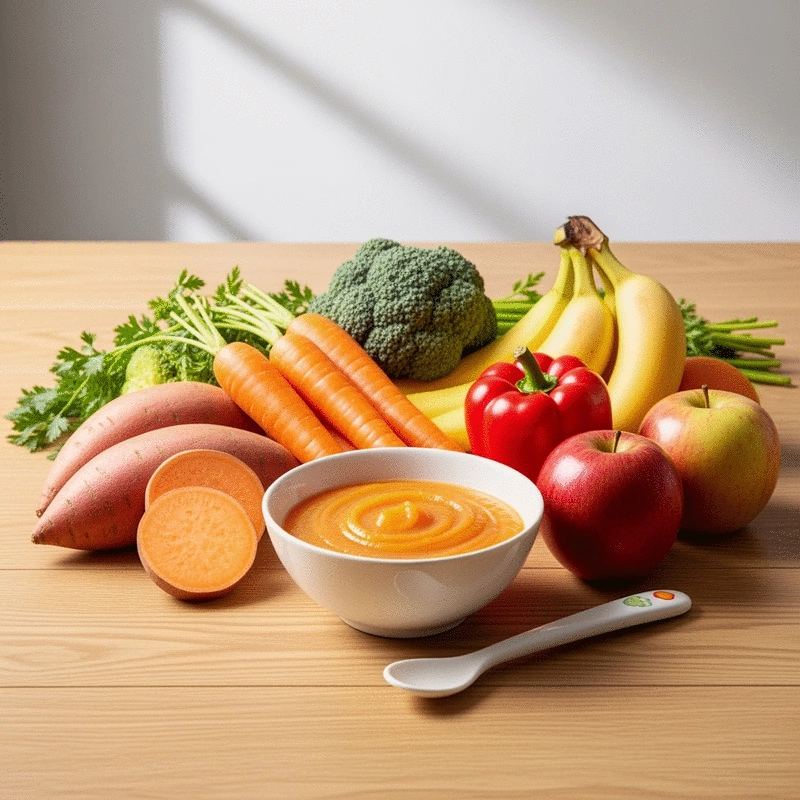
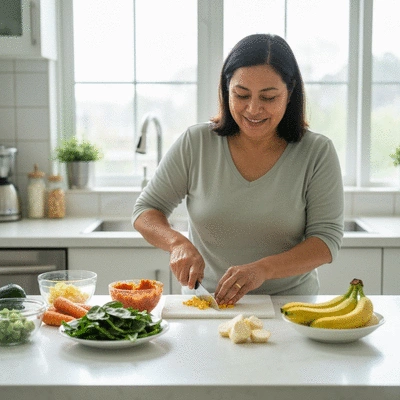
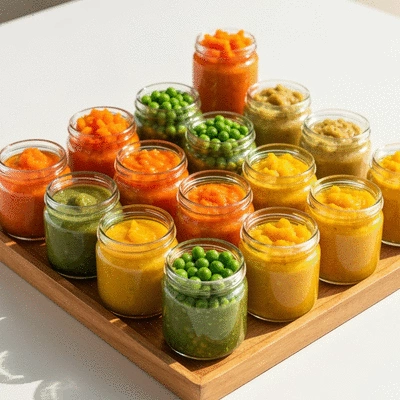
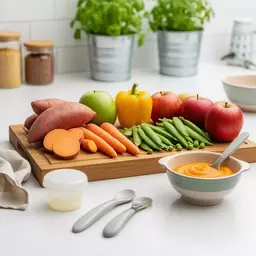 What if I told you that making your own baby food could not only save you money but also give you to
What if I told you that making your own baby food could not only save you money but also give you to
 What if the choice of your baby's food could shape their entire approach to nutrition for life? As y
What if the choice of your baby's food could shape their entire approach to nutrition for life? As y
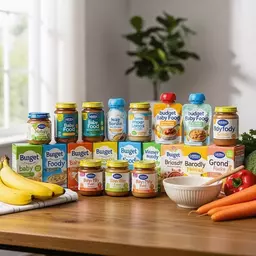 As you navigate the often overwhelming world of baby food shopping, it's essential to arm yourself w
As you navigate the often overwhelming world of baby food shopping, it's essential to arm yourself w
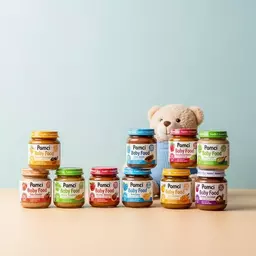 As you embark on the journey of selecting the best baby food for your little one, you might wonder h
As you embark on the journey of selecting the best baby food for your little one, you might wonder h